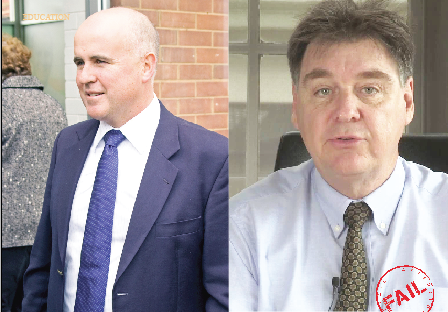Steph Nash and Stephanie Stefanovic reporting
In December last year, a study published by the Australian Journal of Teacher Education found many secondary teaching students possesed serious literacy skills deficencies. Around 200 students were assessed in the study, in which two thirds received a result lower than 50 per cent in spelling.
News of the startling report has driven the NSW government into action, prompting Education Minister, Adrian Piccoli to implement some strucural changes to university teaching courses. Earlier in the year, the Minister announced that from 2016, all students wishing to study secondary teaching will have to achieve three band-5 results in the HSC as a pre-requisite.
Furthermore, an announcement last month revealed that the Board of Studies for Teaching and Educational Standards (BOSTES) have been commissioned to perform a standards overhaul for secondary teaching courses. A list of BOSTES recommendations has since been published, including a strict re-structuring of standards for online degrees.
“BOSTES already assesses the content and delivery of teacher education programs against national standards as part of program accreditation, neccessary for their graduates to be accredited as NSW teachers,” Mr Piccoli said.
“I have now commissioned BOSTES to work with universities and other teacher training institutions on the new, more rigorous approval process and on ways to improve their teaching programs”.
President of the NSW Teacher’s Federation, Maurie Mulheron, admits that although some institutions have far too low entry levels for teaching courses, the quality of current NSW teachers has not been impacted.
“It’s all about supply and demand. Universities such as ACU have been takingin students with very low ATAR scores because they’re attracted to the funding,” Mr Mulheron said.
“We don’t have a problem with out teachers. Australian teachers are among the most sought-after in the world. This is not about having a problem with our current teachers, it’s about supporting them for the future”.
Mulheron explained that certain cultural and economic changes have in turn changed the skills required for successful secondary teaching. Innovation in techonolgy has led to new methods of learning, with teachers now needing revised lesson plans to equally engage all students.
“Teaching is becoming a more complex job. With the increased complexity of teaching, it now requires a post-graduate degree as well as an undergraduate degree,” he said.
“There ought to be higher standards for initial teacher education. The time to do it is now. This is about the future”.












